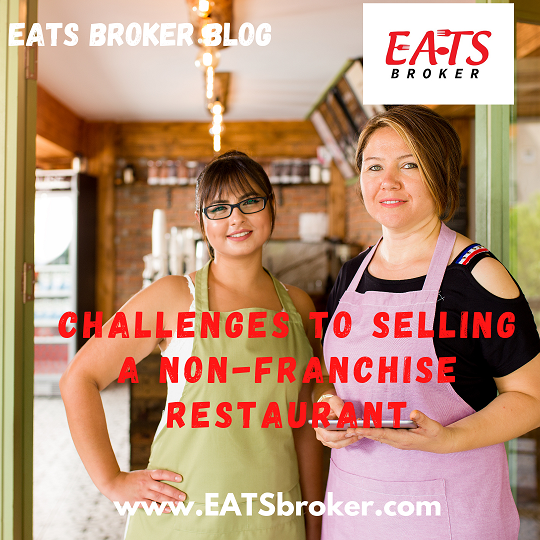The Challenges to Selling a non-franchised restaurant differ from those selling a franchise brand. Restaurants that are Franchises are out selling independently owned restaurants for several reasons.
How often have you heard someone talk about opening or owning a restaurant? For the most part, our society loves the fantasy of restaurant ownership.
When it’s time to buy or start a restaurant, restauranteurs have to decide to join a Franchise Brand or start a non-franchise restaurant. The owners that prefer 100% ownership will choose to begin in a restaurant that is not a franchise.
The decision to open a restaurant that is a non-franchised restaurant can save a substantial amount of start-up money required for a franchise brand. Instantly restauranteurs save on the following items
–Development Fee ranges from $5,000-$50,000
-Royalty Fees range from 3%-10%
-National Marketing Fees
-Required Training cost
-Restaurant Equipment requirements
-Design requirements
Dallas, Texas Restaurant Broker Dominique Maddox says, “the initial fee to start a non-franchise restaurant is usually lower. When it’s time to exit, the restaurant valuation is generally higher for Franchise restaurants.
EATS Broker challenges to selling a non-franchise restaurant are:
Restaurant Valuations: Non-franchise brands usually will have a lower sales multiple compared to National Franchise Brands. The multiple is based on several considerations:
-Company strength
-Number of units open
-Longevity of brand
-Brand Goodwill
-EBITDA
Restaurant Valuation example:
Non-Franchise Brand: $100,000 (EBITDA) x 2.x (multiple) = $200,000 listing price
Franchise Brand: $100,000 (EBITDA) x 3x (multiple) = $300,000 listing price
Good Books and Records-Non-Franchise restaurants do not have a universal accounting system like most Franchise Brands require. The restaurant owner of an independently owned restaurant doesn’t have any checking their number for royalty and marketing fees.
Owners have the freedom to be creative with their books and records. Unorganized financials hurt when it comes to reselling a restaurant. Non-franchise restaurants with books and documents that are not clean or look fake rarely sell.
Restaurant Broker tip: Restaurant owners should confirm that tax returns, profit and loss statements, and sales tax filings tell the same story.
Buyers may request the following financial documents from sellers:
-Tax Returns
-Profit and Loss Statements
-Sales Tax Filings
-POS Sales Report
-Credit Card Statements
-Bank Statements (this is rarely provided in restaurant sales transactions)
Training and Support-New buyers are on their own to learn the concept, operations, employees, and marketing. The buyer usually completes no formal training before or after the sale transaction.
A training schedule can be agreed upon on the Asset Purchase Agreement, but it’s up to the restaurant seller to coordinate and execute. Once the restaurant is sold, the support usually ends from the previous owner.
Unlike a franchise brand with a training program, vendor relationships, and a support system, non-franchise brands may only have vendor relationships.
For more information on the restaurant market and other available consulting services or a complimentary restaurant valuation, contact Dallas Restaurant Broker Dominique Maddox at 404-993-4448 or email at [email protected]. Visit our website at www.EATSbroker.com


